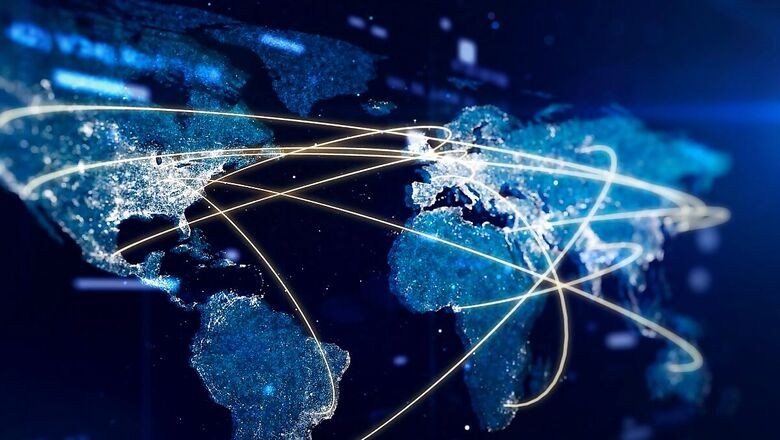
views
Under India’s presidency, the Digital Economy Working Group (DEWG), one of the pivotal arms of the G20 that centred its discussions on harnessing the potential of the digital economy, has come out with a series of remarkable achievements, prioritising digital public infrastructure (DPI), digital skilling and cybersecurity.
These meetings, which spanned across Indian cities, including Lucknow, Hyderabad, Pune and Bengaluru, fostered dialogue among international experts and delegates from G20 member nations.
The primary focus was to draw inspiration from India’s strides in digital empowerment and explore collaborative opportunities for other countries embarking on their digital journeys.
Here’s a look at the key outcomes of the G20 DEWG meetings:
- G20 Framework for DPI: The DEWG introduced a pioneering framework for DPI, recognising it as a vital approach to digitalisation that can benefit multiple sectors. DPI, as envisioned under India’s presidency, involves the creation of shared digital systems accessible to governments, businesses, academia and civil society. It emphasises public access and benefits while maintaining governance and oversight by public authorities. This voluntary framework acknowledges the diverse digital transformation approaches of G20 nations.
- One Future Alliance (OFA) for DPI Funding: The One Future Alliance was initiated to unite like-minded countries in building open-source, customisable digital infrastructure for the future. The alliance aims to harness the power of technology to enhance governance and improve people’s lives. Discussions during the DEWG meetings included the creation of the ‘One Future Fund’ to finance digital public infrastructure projects, particularly in Low and Middle-Income Countries (LMICs).
- Global DPI Repository: A virtual repository for DPI, voluntarily shared by G20 members and beyond, was established. This repository serves as a platform to exchange best practices and experiences related to the development and deployment of DPI, including relevant tools and resources from different countries.
- Building Safety, Security, Resilience and Trust in Digital Economy: In recognition of the rapid growth of the digital economy, G20 DEWG affirmed its commitment to promoting safety, trust, reliability, resilience and protecting privacy and data. High-level principles were introduced to guide businesses in these aspects.
- G20 Toolkit on Cyber Education and Awareness for Children and Youth: With the increasing integration of digital technology into the lives of young people, cyber risks targeting children and youth have grown. The DEWG acknowledged this challenge and introduced a toolkit aimed at enhancing cyber education and awareness among children and youth. The toolkit is based on extensive research and offers key takeaways for policymakers, including the classification of risks, investing in support systems, adopting a multi-stakeholder approach, promoting global cooperation and recognizing the role of businesses and online platforms.
- G20 Toolkit for Digital Upskilling and Reskilling Programs: To address digital skill gaps in the workforce, the DEWG created a toolkit to assist in the design and implementation of digital upskilling and reskilling programs. This comprehensive toolkit comprises case studies, enabling factors, implementation challenges and good practices from G20 member nations and beyond.
- Roadmap to Facilitate Cross-Country Comparison of Digital Skills: Recognising the need for standardised measurement of digital skills, the roadmap encourages countries to identify, define and compare digital skills and competencies across borders. It seeks to create a common understanding of digital skills taxonomies related to the skills needed for the digital era, aiming to enhance employment, innovation and economic development.
- UNESCO Virtual Centre of Excellence for Digitally Skilled Talent: The DEWG discussions highlighted the significance of India’s proposal to establish a virtual Centre of Excellence (CoE), to be built and maintained by UNESCO. This CoE will serve as a repository of best practices in digital skilling, occupational standards, skill taxonomies, professional certifications, and studies related to digital skills. It will promote information exchange and learning from diverse approaches adopted by interested countries.
These outcomes signify a concerted effort to leverage digitalisation for the betterment of societies, economies and global cooperation. Furthermore, the G20 DEWG meetings under India’s leadership have laid the foundation for a digitally empowered and interconnected world.


















Comments
0 comment